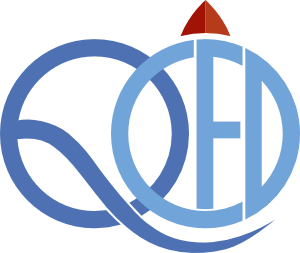Boxi Li, F. A. Cárdenas-López, Adrian Lupascu, Felix Motzoi
Qudits, generalizations of qubits to multilevel quantum systems, offer enhanced computational efficiency by encoding more information per lattice cell, avoiding costly swap operations and providing even
exponential speedup in some cases. Utilizing the d-level manifold, however, requires high-speed gate
operations because of the stronger decoherence at higher levels. While analytical control methods have
proven effective for qubits in achieving fast gates with minimal control errors, their extension to qudits is
nontrivial due to the increased complexity of the energy-level structure arising from additional ancillary
states. In this work, we present a universal pulse construction for generating rapid, high-fidelity unitary
rotations between adjacent qudit levels, thereby providing a prescription for any gate in SU(d). Control
errors in these operations are effectively analyzed within a four-level subspace, including two leakage
levels with approximately opposite detuning. By identifying the optimal degrees of freedom, we derive
concise analytical pulse schemes that suppress multiple control errors and outperform existing methods.
Remarkably, our approach achieves consistent coherent error scaling across all levels, approaching the
quantum speed limit independently of parameter variations between levels. Numerical validation on transmon circuits demonstrates significant improvements in gate fidelity for various qudit sizes aiming for 10−4
error. This method provides a scalable solution for improving qudit control and can be broadly applied to
other quantum systems with ladder structures or operations involving multiple ancillary levels.
Cite as BibTEX
@article{9dxw-4c7y,
title = {Universal Pulses for Superconducting Qudit Ladder Gates},
author = {Li, Boxi and C\’ardenas-L\’opez, F.A. and Lupascu, Adrian and Motzoi, Felix},
journal = {PRX Quantum},
volume = {6},
issue = {3},
pages = {030357},
numpages = {20},
year = {2025},
month = {Sep},
publisher = {American Physical Society},
doi = {10.1103/9dxw-4c7y},
url = {https://link.aps.org/doi/10.1103/9dxw-4c7y}
}
